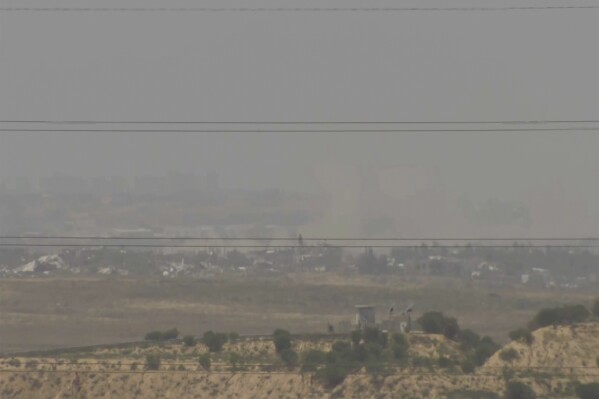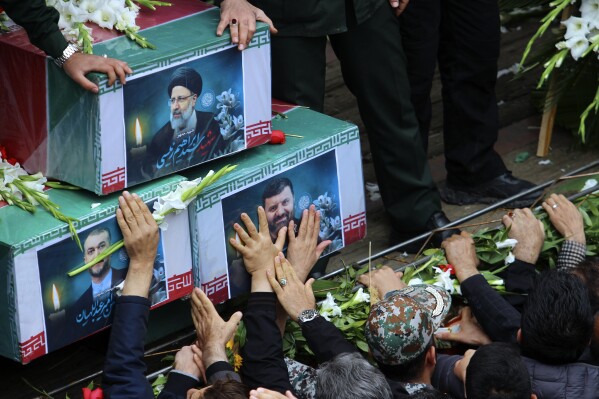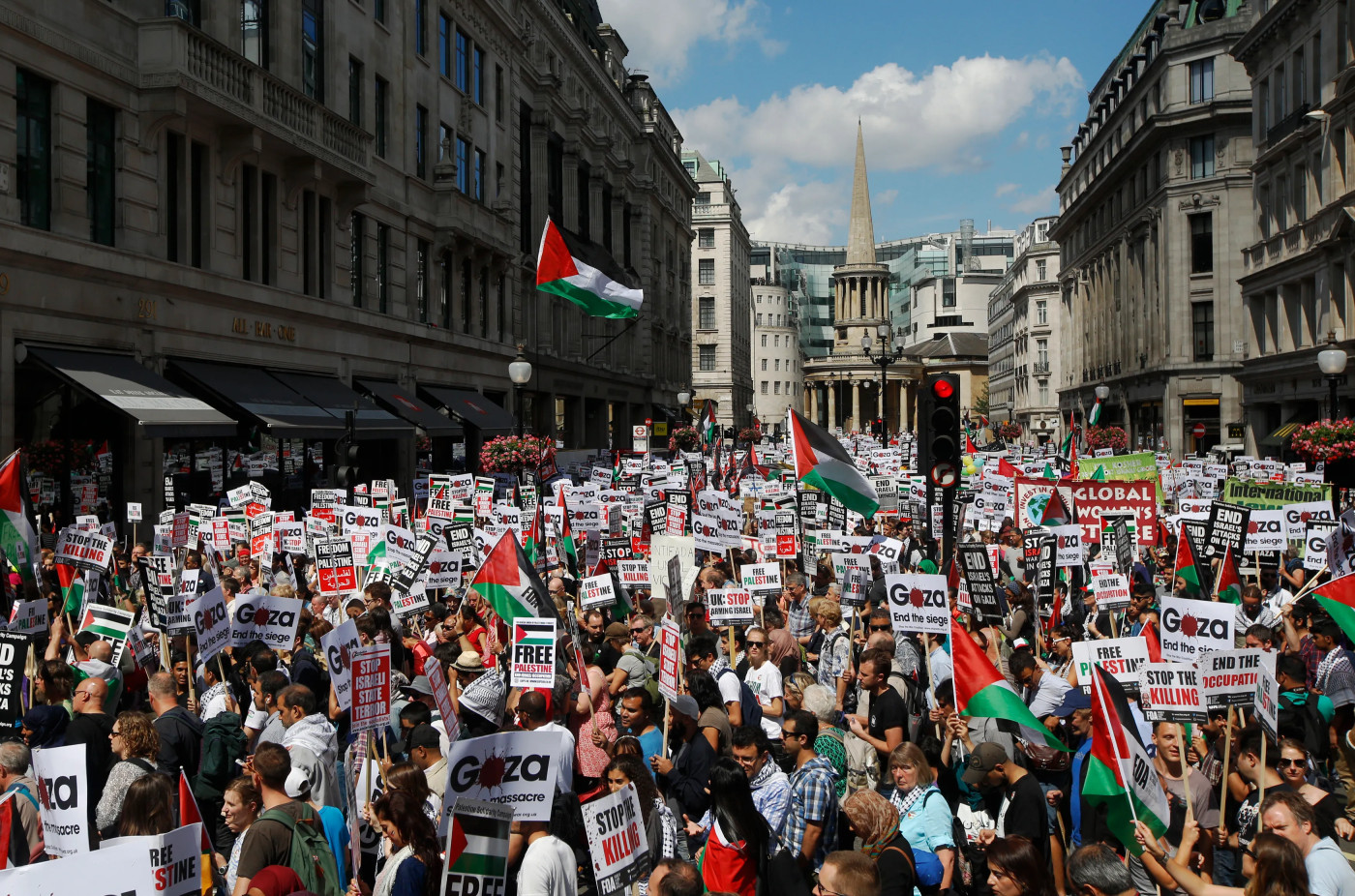How Putin's and Netanyahu's ICC Woes Compare
Israeli leaders and their American allies have been rattled by the news that the International Criminal Court (ICC) prosecutors are seeking arrest warrants for Prime Minister Benjmain Netanyahu and Defense Minister Yoav Gallant over the country's conduct in the Gaza Strip.
The divisive Israeli leader and his defense minister—who is among those vying to replace Netanyahu—may soon find themselves on an ignominious list of leaders with ICC arrest warrants against their names, alongside figures including Russian President Vladimir Putin.
Netanyahu dismissed the proposition of arrest warrants as "a moral outrage of historic proportions." Gallant, meanwhile, said the ICC's efforts were "disgraceful." Even Netanyahu's fiercest political opponents are rallying around the prime minister, their efforts to force the collapse of his shaky coalition government overshadowed by the prospective ICC action.
The ICC push is a further diplomatic setback for Netanyahu and his fellow leaders, who have seen international outrage mounting over their operation in Gaza.
"It's a massive moment in the development of the ICC," Anthony Dworkin, a senior policy fellow at the European Council on Foreign Relations (ECFR), told Newsweek. "It's a very significant moment in the evolution of international justice."
If arrest warrants are issued, it could also prove embarrassing for Israel's Western allies—including the U.S.—who were full-throated in their support of the ICC's 2023 warrant against Putin.
President Joe Biden said in March that the court's action against the Russian president was "justified" and "makes a very strong point," even though the body is not recognized by the U.S. or Russia. Secretary of State Antony Blinken then urged all ICC signatories to comply with the arrest warrant.
Israel is not a signatory of the ICC's foundational Rome Statute, meaning it is not subject to the court's decisions. The U.S., Russia and China also sit outside the bounds of the ICC. But most European nations, including Germany, France and the U.K., are signatories, which may make them dangerous destinations for Netanyahu and Gallant if ICC arrest warrants are issued against them.
As in Putin's case, it is unlikely that Netanyahu or Gallant will be arrested, even if the ICC decides to take action. Still, the warrant against the Russian leader has complicated his travel plans, for example in his decision to skip the BRICs summit in South Africa—an ICC signatory—in July 2023, even though Pretoria announced that Putin would be deemed diplomatically immune.
ICC signatory states have previously sought to sidestep arrest warrants for indicted individuals by citing diplomatic immunity. The ICC appeals chamber ruled against this in 2019 regarding Jordan's decision not to arrest then-Sundanese President Omar al-Bashir—who had been indicted for war crimes—when he traveled to the country in 2017.
"I think the ICC's decision in that case is not universally supported," Dworkin said. "There might be some European governments whose legal services would question whether that really applied. Nevertheless, that is the decision of the ICC. And so, under the system, that's binding on member states."
The United Nations Security Council has the power to defer any ICC investigation or prosecution for a renewable period of 12 months.
"If European countries decided that they wanted to push through a proposal at the Security Council to have a suspension of these investigations and prosecutions, then—if they were able to muster the votes and no country vetoed it—they could do that," Dworkin added.
The ICC's bid for arrest warrants may prove an important milestone on the path to a post-war settlement in Gaza, the absence of which has been a point of serious tensions within Israel and abroad.
"If it could be that there was a serious, meaningful process to resolve the conflict in a sustainable way that included a real ceasefire and a path towards a sustainable, viable post-conflict future for Gaza, then I think it would not be inappropriate as part of those discussions to consider whether that article could be invoked," Dworkin said.
"But I think it would be a travesty if it was used simply to try and shield Israeli leaders from accountability absent of a very different approach to peace negotiations than we see now."
ICC prosecutors are also seeking the arrest of four top Hamas leaders, including Gaza Strip leader Yahya Sinwar, military commander Mohammed Deif and political chief Ismail Haniyeh related to the group's October 7 infiltration attack into southern Israel that killed some 1,200 people and saw more than 250 taken hostage. Haniyeh lives in Qatar, which is also not a signatory to the Rome Statute.
American and Israeli leaders have complained that the ICC pursuing Hamas and Israeli figures suggested an unacceptable moral equivalence between the October 7 attack and Israel's response, which has killed more than 35,000 Palestinians in Gaza—per Strip Health Ministry data cited by the Associated Press—and prompted a humanitarian crisis in the Mediterranean exclave.
A panel of three judges will now decide whether to issue the proposed arrest warrants. NBC News reported that such decisions usually take about two months.
Several European nations have already reacted. British Prime Minister Rishi Sunak said on Tuesday there was "no moral equivalence between a democratic state exercising its lawful right to self-defense and the terrorist group Hamas."
Germany issued a statement supporting the work and independence of the ICC. But Berlin said the pursuit of warrants against Israeli and Hamas leaders created an "incorrect impression of equivalency."
France's Foreign Ministry, meanwhile, said in a statement that it "supports the International Criminal Court, its independence, and the fight against impunity in all situations."
Belgian Foreign Minister Hadja Lahbib was more forthright, writing on X, formerly Twitter: "Crimes committed in Gaza must be prosecuted at the highest level, regardless of the perpetrators."
Disclaimer: The copyright of this article belongs to the original author. Reposting this article is solely for the purpose of information dissemination and does not constitute any investment advice. If there is any infringement, please contact us immediately. We will make corrections or deletions as necessary. Thank you.


